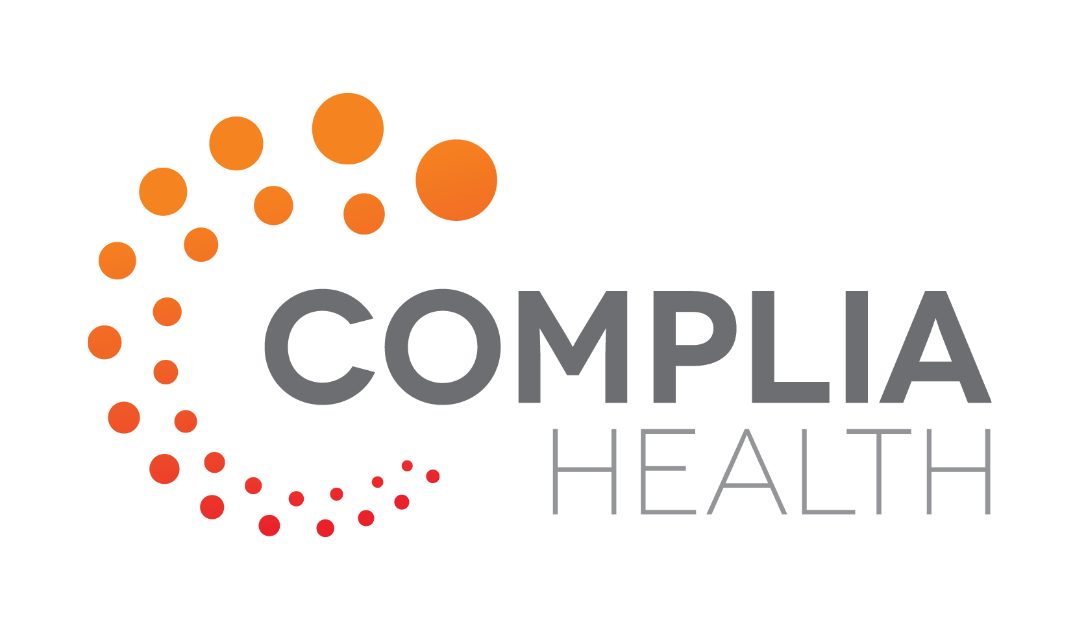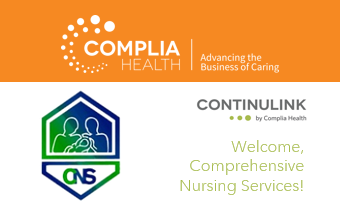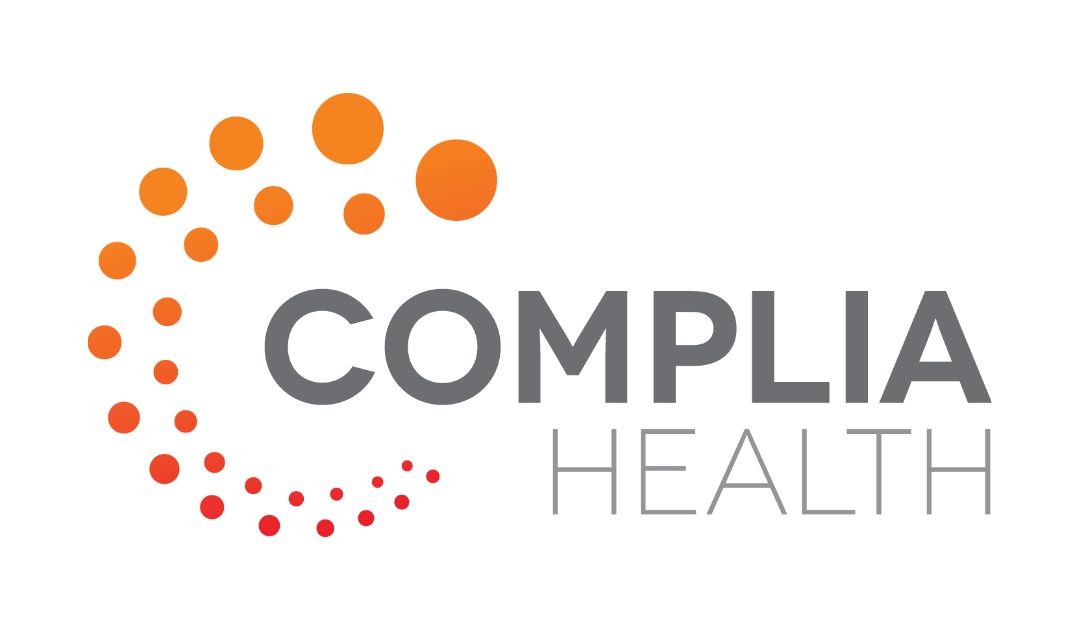Article by Jack Silverstein | April 18, 2022
This article is sponsored by Complia Health. In this Voices interview, Home Health Care News sits down with Complia Health CEO Rich Berner to learn the impact that his work in the business consumer space has had on his approach to health care technology. Berner also shares insights into Complia Health’s smart aging platform that automates much of the chronic condition management that happens above the EMR, and discusses how independent care agencies can best position themselves to successfully participate in today’s escalating M&A action.
Home Health Care News: Rich, what career experiences do you most draw from in your role today?
Rich Berner: The first decade of my career was spent outside of health care in the business to consumer space. Interestingly enough, I draw a lot from that experience because health care is still arguably 10 to 15 years behind other industries in its use of technology. And there’s a lot that we can learn from how other industries have used technology to increase convenience and quality while driving down cost. The other thing I draw from is two-plus decades of building a professional network. Health care is complex and the task ahead of us is monumental. To achieve that task, we need a passionate, hardworking team of smart individuals. Being able to recruit top talent is key for me.
Lastly, even though I approach health care from a technologist perspective, being a computer scientist by trade, I draw on my experience solving problems and have spent most of my health care career trying to get teams and clients to focus first on the problem we’re trying to solve, and then talk about how we might utilize technology to help solve that problem.
Demand for in-home care is growing at an unprecedented rate through at least 2030. What steps should care agencies take to ensure that they capitalize on this growth market?
Berner: I’d say the first step is that to capture this growth, we really have to shift to a consumer-focused mindset. When I talk about a consumer mindset, I’m not only talking about their clients and their patients and their families but also their staff. Agencies have to think about how the demands of their staff, clients and patients are changing. Engaging all people in the care process where, when, and how they want to be engaged should be our collective focus.
Secondarily, to be able to scale during this rapid change and rapid growth, technology can no longer merely support your strategy. It must be a key pillar of your strategy to ensure that you can scale quickly and profitably. As agencies are growing and potentially adding more service lines, and as reimbursements are changing, agencies having a simple technology architecture that can interoperate with the rest of the community will be critical to their success going forward.
Half of all care agencies say that they are turning down work because of staff shortages. What new technologies are most relevant for increasing the efficiency and capacity of these agencies?
Berner: Beyond the obvious — technologies that help with recruiting and attracting staff — what agencies can do is focus on artificial intelligence, machine learning-based platforms that can automate as much of the staff’s tasks as possible. For members of the care team, this is not a job — it’s a vocation. They are in this for the care that they’re providing to their client or their patient. They want to spend as much time as possible doing that.
If you can automate some of the simple and routine things they do and ease the way they interact with the administrators and the family so that they can do the things they love, you’re going to drive retention.
There are excellent technologies coming out related to automated caregiver incentive programs. Beyond making it easier for staff to do the right thing, these incentive programs demonstrate that you appreciate what the staff or care team are doing. That will only grow in importance.
I think the last thing is, particularly as we learned during COVID, there are many types of care that can be provided remotely or through automation. I think anything that can be automated or provided from a single team remotely is going to free up the rest of the team to do more in-person work when required.
Value-based purchasing is just around the corner. What concrete steps can agencies take to ensure that they thrive rather than suffer under this new reimbursement model?
Berner: I’d say before even jumping into those steps, people have to recognize that the agencies that are going to succeed are the ones that are willing to change, add service lines, control a broader portion of the continuum of care, and take on risk. They have to understand that technology is core to their strategy. As all of this change is building up for agencies, I think it’s going to be critical to think more like Netflix than Blockbuster.
I think as far as specific steps, as agencies are taking on new service lines and thinking about different types of reimbursement models and more control over the continuum of care, it’s going to be critical to understand how to have an evidence-based chronic condition management strategy. This means knowing how you’re going to manage care across service lines and do it in a way that is going to not only drive better quality and outcomes, but also reduce cost.
To reduce cost, having a tech-first approach would be the second thing that I think is going to be critical. Like I said, if something can be automated, it should be automated. If something can be done remotely and managed remotely, it should be, because that’s going to give you the ability to scale faster, drive more productivity out of staff and increase consumer and family engagement.
Lastly, we have to move away from reactive care and make sure you have the technology in place that helps you continuously monitor all data across the community so you can shift to proactive and predictive health management, where you’re providing insights at the point of care to not only the care team but also clients, patients and their families.
Consumer service quality expectations are rising, especially with this influx of digitally-savvy seniors. How can care models change to better engage patients and families in the care process?
Berner: You have to engage consumers and their families where they want, when they want and how they want. If somebody wants self-service, provide self-service. If somebody wants to interact with a human and they prefer remote, do it remotely. If somebody wants to meet somebody in person, do it as quickly as possible with the highest possible quality. You also have to be able to predict the consumer’s and family’s needs, and suggest actions that they may want to take, particularly when it comes to preventing problems from happening or getting worse.
This is the age of convenience. Consumers want easy access to high-quality care. They want the confidence to know in advance that their care is high quality. Consumers want to interact with health care the way they do in just about every other industry. That’d be the way they shop, the way they plan travel, the way they bank. They want those same types of experiences in health care.
How can independent care agencies best position themselves to successfully participate in the escalating M&A action we’re seeing in the industry?
Berner: First and foremost, don’t focus directly on M&A. Focus first on everything we’ve talked about, because the more your agency grows and the more profitable your agency is, the more options you are providing yourself. Those options will also be at higher value.
If you’re focusing first on building that high-growth profitable business and then you want to think about M&A, I would say there are a lot of advisors out there, and to interview a handful of them before you engage any single advisor. Everyone you interview will come with a lot of ideas and education about things you should be thinking about.
Finish this sentence: “The home-based care industry in 2022 will be the year of…”
Berner: The return to the new normal. While we all return to what we used to think of as normal, we will define what the new normal is through applying all we have learned during the pandemic.
Editor’s note: This interview has been edited for length and clarity.



